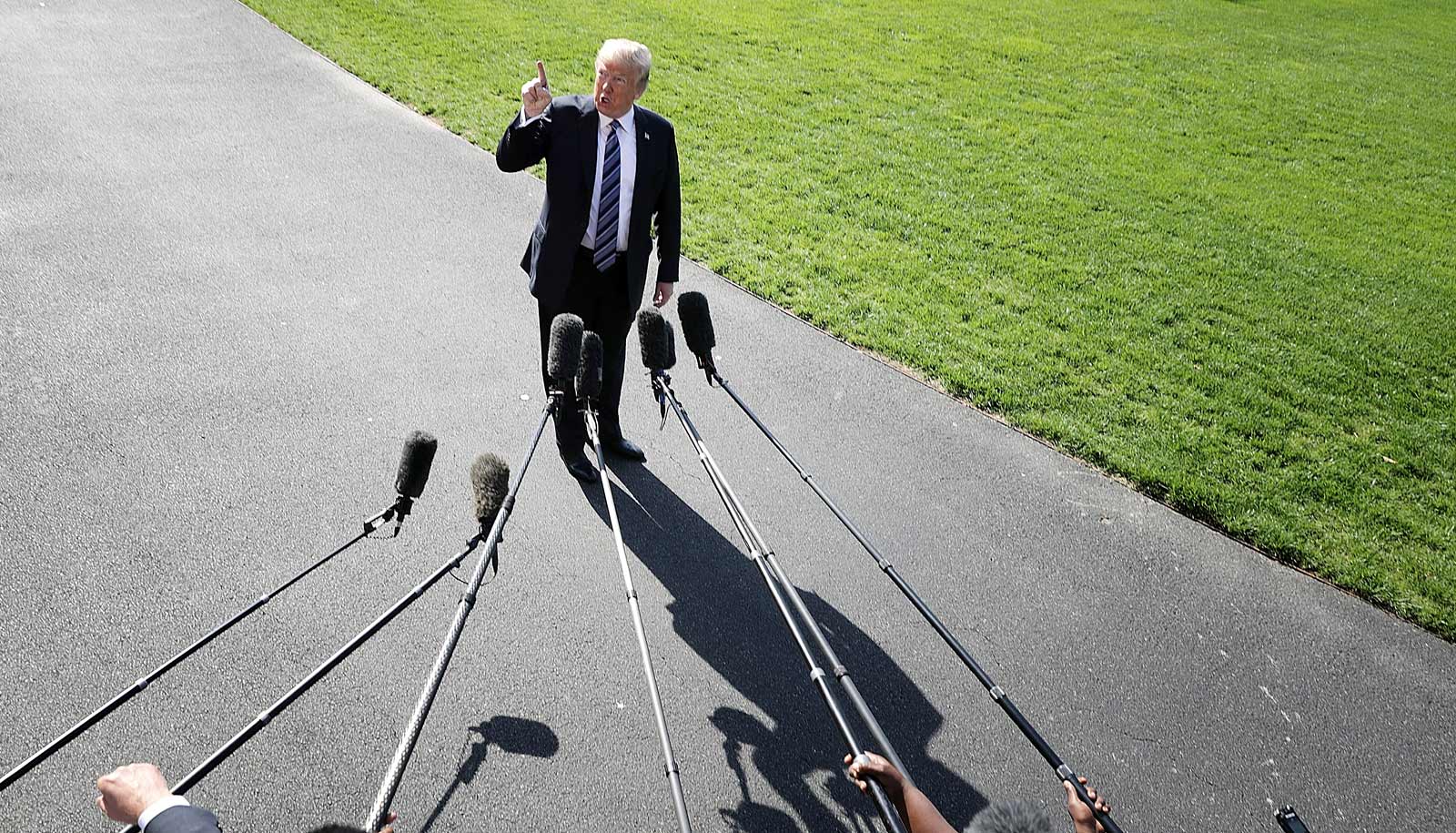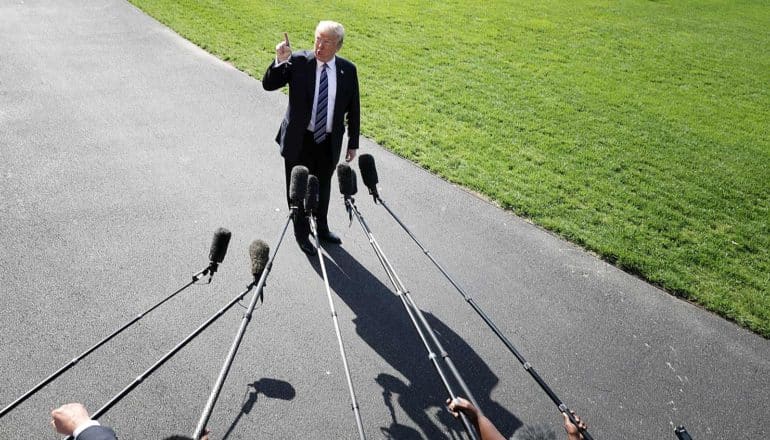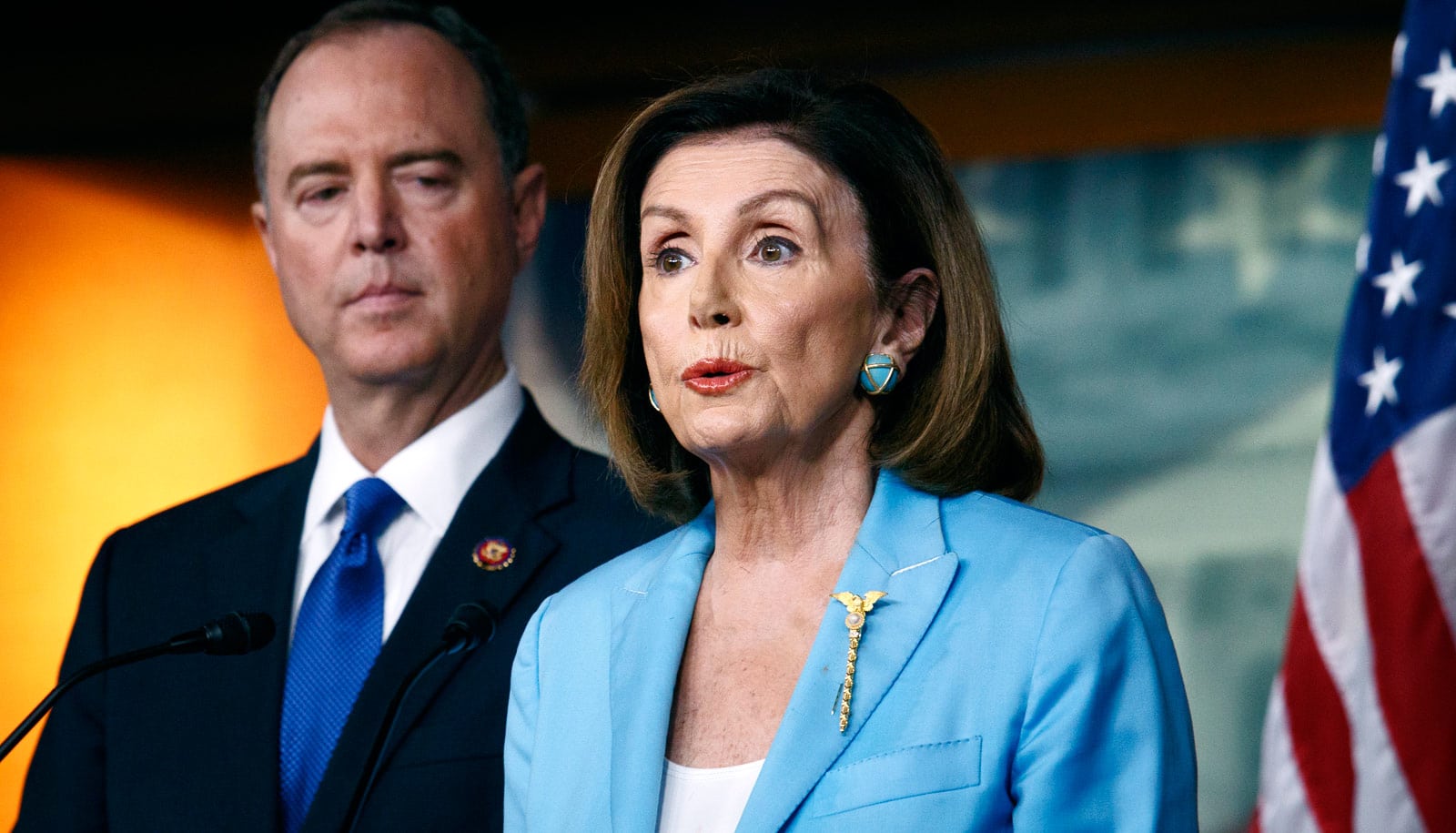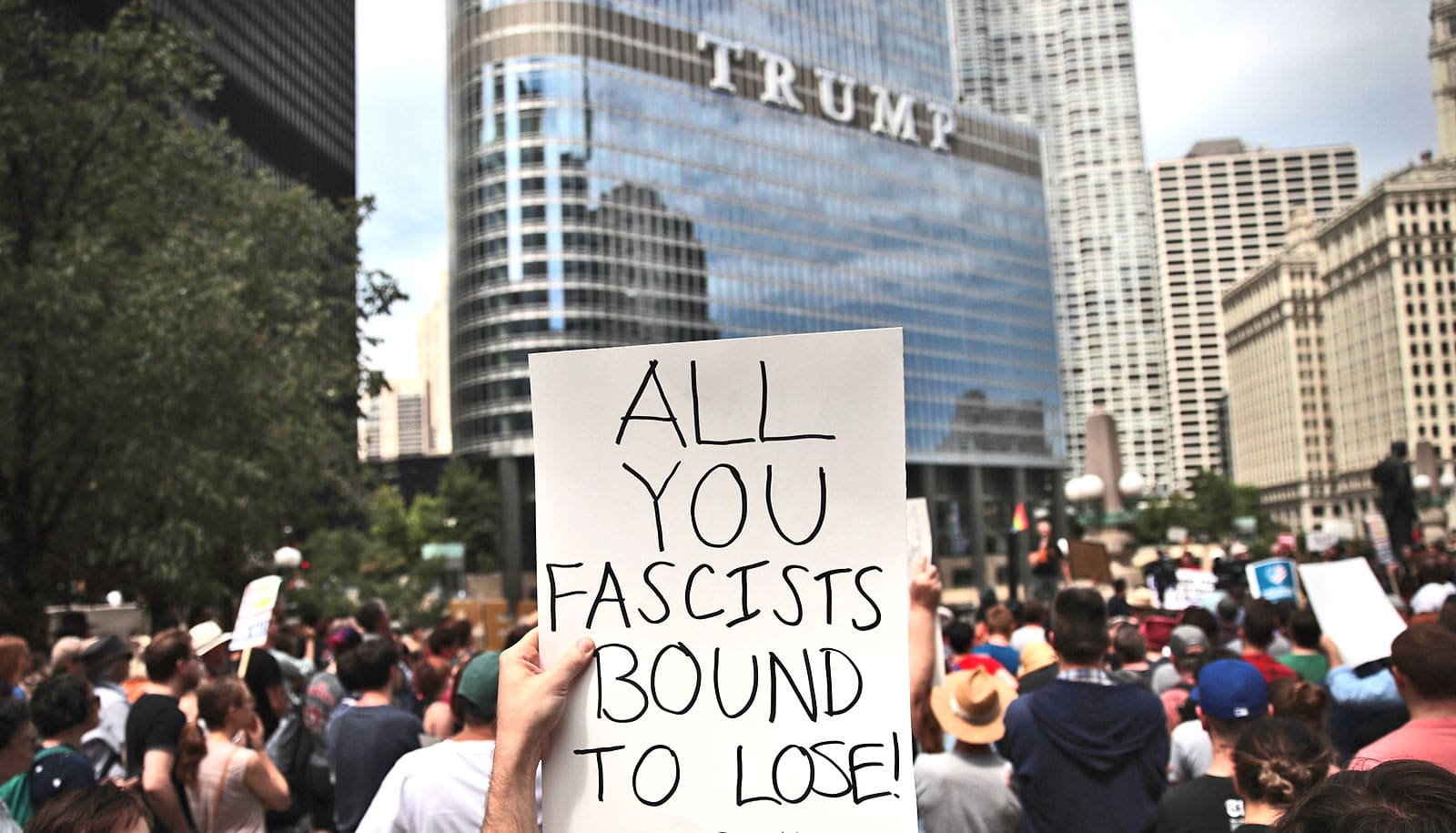
(Credit: Chip Somodevilla/Getty Images )
We forget presidents surprisingly fast. Even Trump?
"If Trump is remembered in 75 years, it will probably be because of what happens during his term of office, not his personality."

Research shows most United States presidents fade quickly from the nation’s collective memory—a fate that could even befall Trump.
Building toward the climax of his recent State of the Union address, President Donald Trump implored the leaders of “the most extraordinary nation in all of history” to consider their legacies at this tumultuous moment in history.
“How will we be remembered?” he asked, noting that he and the US Congress “must choose whether we are defined by our differences—or whether we dare to transcend them.”
But it isn’t about partisanship but rather the passage of time. In the months after the death of the 41st president, George H.W. Bush, it’s telling that human memory expert Henry L. Roediger III made this prediction about Bush’s predecessors just five years ago: “By the year 2060, Americans will probably remember as much about the 39th and 40th presidents, Jimmy Carter and Ronald Reagan, as they now remember about our 13th president, Millard Fillmore.”
Roediger, a professor in the psychological and brain sciences department at Washington University in St. Louis, has been testing undergraduate college students on their ability to recall the names of presidents since he was a graduate student at Yale in 1973. His latest paper on the topic appears in Current Directions in Psychological Science.
How well will people remember Trump?
“It’s really hard to predict,” Roediger says. “He is unique in so many ways.
“If Trump is remembered in 75 years, it will probably be because of what happens during his term of office, not his personality. Presidents during cataclysmic events such as wars are likely to be better remembered than those who governed in times of peace. We may have had quirky presidents in the past with their quirks irrelevant to their memorability. Benjamin Harrison dressed up as Santa Claus at Christmas time, but if he is remembered at all today, it’s not for that reason.
“Still, I predicted in 1974 that Gerald Ford would be well remembered because he was the first person to become president without having been elected either president or vice president. Yet this unique feature is not remembered today.”
Expiration dates
While American presidents spend their time in office trying to carve out a prominent place in the nation’s collective memory, Roediger’s research suggests that most will be largely forgotten within 50-to-100 years of their serving as president.
Less than 20% of participants are able to recall more than the past 8 or 9 presidents in a row.
His current paper, written with K. Andrew DeSoto, assistant director for policy at the Association for Psychological Science and a former Washington University graduate student, compares results from the presidential-recall tests Roediger has given to three generations of undergraduate college students (1974, 1991, and 2009) with a similar test offered online to 577 adults ages 18-69 in 2014. It also examines the ability of another group of adults to identify the names of presidents among a larger group of names.
Early on, Roediger administered the presidential-recall test to research individual test takers’ patters of remembering and forgetting. In their new study, he and DeSoto were able to uncover how Americans forget presidents from our historical or popular memory over time.
Participants in each test were given a blank list and asked to record the names of all presidents they could remember, in order of the presidents’ service. If they were able to recall names but not the order, they were instructed to guess or to list those in the margin. Therefore, the researchers could score the results based on the participants’ recall of presidents, regardless of correct order.
The research continues to find consistent patterns in how we have forgotten such leaders of the free world—and a trusty formula to predict the rate in which future generations are likely to forget current presidents.
Unique figures
Among the half-dozen presidents who served around the time the test first was given in 1973, Harry S. Truman, Lyndon B. Johnson, and Gerald R. Ford faded fast from historical memory, whereas John F. Kennedy has been better retained. That study estimated Truman will be forgotten by three-fourths of college students by 2040, bringing him down to the level of presidents such as Zachary Taylor and William McKinley.
“Kennedy was president less than three years, but is today remembered much better than Lyndon Johnson, who served much longer and accomplished much more,” Roediger says. One suggestion: Assassination rendered Kennedy more memorable. However, Roediger adds, that doesn’t apply to James Garfield or the previously mentioned McKinley.
Hillary Clinton, had she won the election in 2016, had the potential to be much better remembered than her husband, because her presidency would represent a unique first in American history. Barack Obama may be well remembered for the same reason, Roediger says.
Presidents in order
Given the nearly half-century window for these tests and this presidential memory study, the rate at which college students forget the order of recent presidents remained amazingly consistent across groups and over time. For instance, 1974 college students roundly recalled Johnson and his ordinal position—number 36. But by 1991, the numbers who recalled him dropped to 53 percent. By 2009, it plummeted to 20 percent.
Their research shows that less than 20 percent of the participants are able to recall more than the past eight or nine presidents in a row. As of today, that means somewhere around Ford and Nixon are the end of the memorable line—and Johnson is history.
Speaking of history, the chronological order of presidencies also becomes difficult for Americans to remember. After the first four or five presidents, their research finds, the recall success drops off sharply—with fewer than 25 percent able to remember presidents in order after George Washington, John Adams, Thomas Jefferson, James Madison, and James Monroe.
“We’ve also tested individuals’ abilities to choose presidents’ names out of a list, rather than recall them from memory,” DeSoto says. “Although people do better at this task, the presidents who are best recalled are also best recognized.”
Number 8 Martin Van Buren to number 30 Calvin Coolidge—you can forget them. And you have, according to their previous research. There has been a level of poor recall for this presidential period spanning the four decades of Roediger’s research.
The exception: Abraham Lincoln and his immediate successors, Andrew Johnson and Ulysses S. Grant. The Civil War and the abolition of slavery certain has something to do with that, Roediger says, but it’s notable that people are able to readily recall Lincoln’s ordinal position as the 16th president.
Others who are memorable pre-Coolidge: Number 26 Theodore Roosevelt, number 27 William Howard Taft, and number 28 Woodrow Wilson.
Source: Washington University in St. Louis
The post We forget presidents surprisingly fast. Even Trump? appeared first on Futurity.
Share this article:
This article uses material from the Futurity article, and is licenced under a CC BY-SA 4.0 International License. Images, videos and audio are available under their respective licenses.


